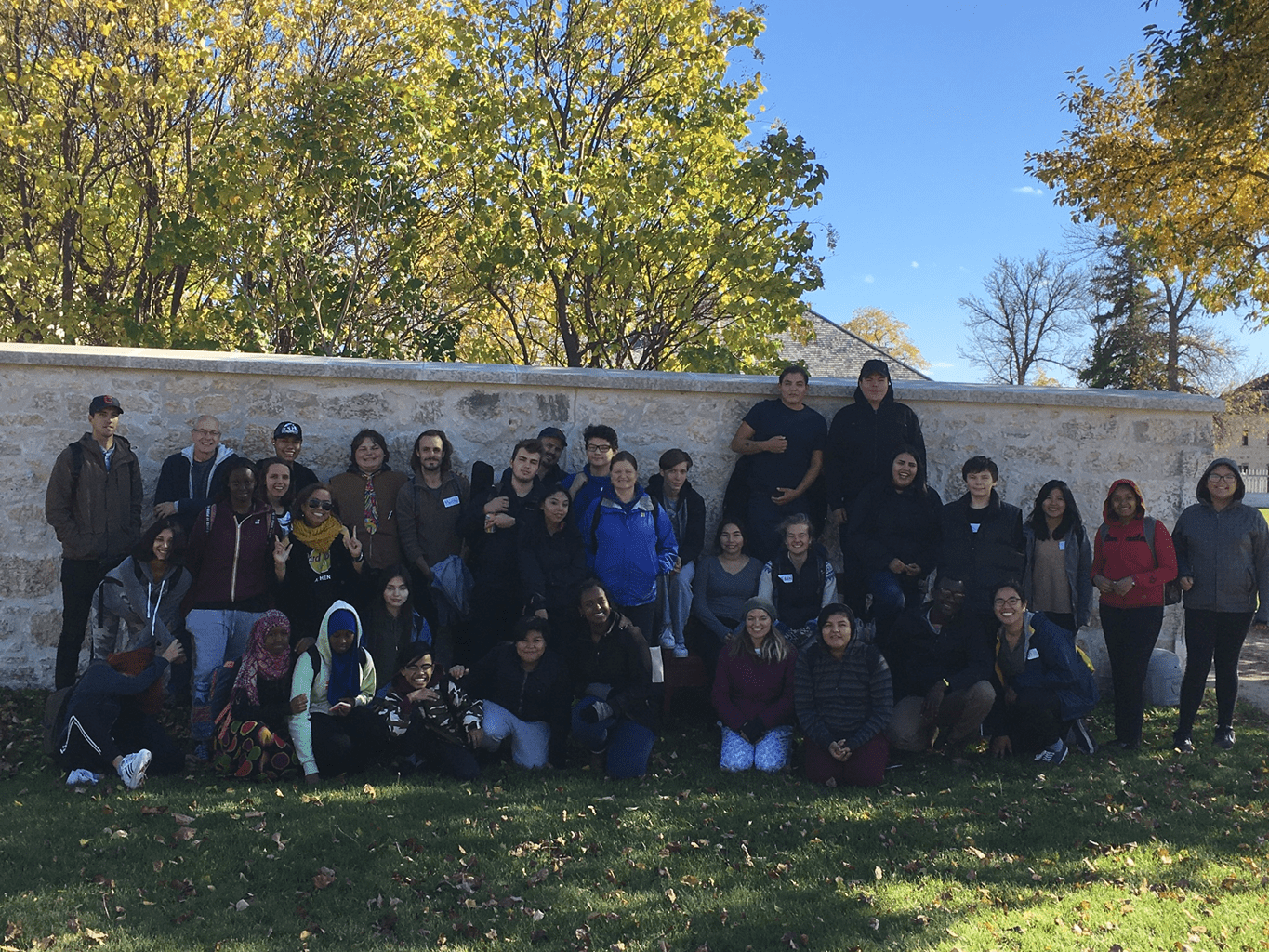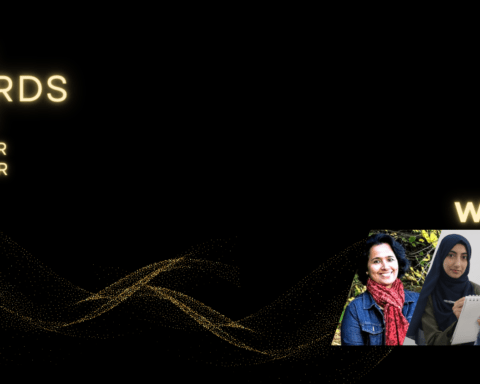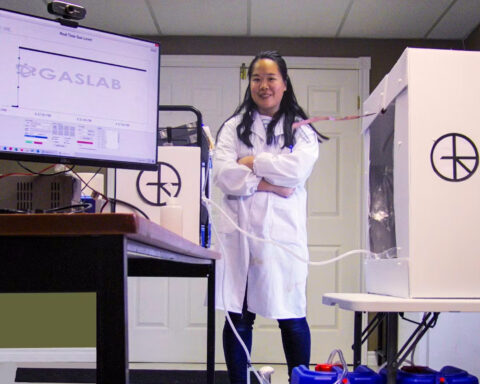GIGI Fallorin of Hugh John McDonald School — one of the Winnipeg inner-city schools that participated in the Careers that Fight Climate Change program — was recently awarded the 2021 Outstanding Teacher Award by the Science Teachers’ Association of Manitoba for her innovative approach.
Fallorin says the program was an “immersion experience,” giving students an opportunity to see “the real-world applications” of their classroom learning and enabled her to reflect and grow. Although an experienced teacher in the Philippines, Fallorin worked in a manufacturing plant after arriving in Canada in 2004, until deciding to invest the time and money in the “after education program” required to teach in Manitoba.
“If I can beat the system, I told myself I’d better rise up to the challenge,” she says.
A pilot initiative, Careers that Fight Climate Change, gave youth in Winnipeg’s inner-city a unique opportunity to explore careers in climate change through land-based education.
Jobb Arnold, associate professor of conflict resolution studies at Menno Simons College of Canadian Mennonite University, created the program after interviewing organizers from Indigenous, non-Indigenous, and newcomer communities about their concerns before and after the 2015 federal election.
Creating job opportunities
Arnold identified climate change as a “superordinate goal” that could bring people of different identity backgrounds together. Another common desire was employment.
“(I was) thinking about, what are some careers that people could tap into that would also start to address these kinds of existential questions of climate change, and how could (we) bring people together to do practical things with these kinds of goals in mind?”
Around 20 youth (ages 13 to 17) from opposite sides of the railway tracks participated in the program from September 2017 to June 2018. They came from R.B. Russell, a primarily Indigenous vocational high school, and Hugh John McDonald middle school. A few university students acted as mentors.
The group visited various sites of historical importance, including Lower Fort Garry, where Treaty 1 was signed.
“I think it was really impactful that people were thinking about what does it mean to have a treaty? What does it mean to be a treaty person? What does that relational dynamic entail?” says Arnold. “(It) grounds the conversation in a real way to a certain place.”
Another outing was to Shoal Lake 40 First Nation, where they learned the aqueduct built to pump fresh water into Winnipeg also resulted in isolating the local Indigenous community from the mainland. The youth got to put their science skills into action through water testing and participated in a fish fry.
During a visit to Immigrant and Refugee Community Organization of Manitoba (IRCOM) House, which provides transitional housing for newcomer families, Arnold said Indigenous students shared the site had previously served as low-income Indigenous housing.
Subsequent group discussions reflected on the fact no similar support exists to help Indigenous people from reserves to settle in the capital city.
Youth also toured Social Enterprise Centre to explore alternative pathways to education and employment. Shaun Loney, social entrepreneur, and 2022 Winnipeg mayoral candidate, defines social enterprises as “disruptive” non-profit businesses combining kindness and compassion with tools of entrepreneurship.
“We believe the work we’re doing is really Canada’s defining issue — connecting the people who most need to work with the work that most needs to be done,” says Loney.
Students were introduced to BUILD Inc., co-founded by Loney, which helps people with multiple barriers to employment in the North End gain work experience in trades over six months while installing insulation in low-income housing areas. Participants also gain access to skills development opportunities, such as driver’s training and financial literacy.
Youth also encountered Aki Energy, another initiative Loney co-founded and which he says has now installed $15-million worth of geothermal energy or “ground source heat pumps” on Indigenous land while employing Indigenous people.
“I felt (the school group’s) hope for a better world, that there were business models that could bring about the economic change and the social change and environmental change that is needed in our city,” says Loney.
Respecting Indigenous heritage
According to Fallorin, the youth gained an appreciation for Indigenous cultural traditions of paying respect to the land. Many are now in Grade 12, but keep in touch with her. “Some are thinking of going into agriculture, which is kind of unheard of for many of the millennials.”
Funding from CMU covered the core land-based activities of the Careers that Fight Climate Change pilot. Additional funding from collaborators at the University of Manitoba’s community service learning department helped facilitate community-based partnerships and staff support.
After Arnold’s application for further funding through a Social Science and Humanities Research Council Connect Grant in 2017 was unsuccessful, the program ended in June 2018.
Busy with caring for his first child and coordinating a master’s program in peace and collaborative development since Arnold has not sought further funding for the initiative. He has, however, continued to be involved in other experiential land-based learning initiatives, such as the course for the Canadian School of Peacebuilding he co-taught this spring at Sandy Saultaux Spiritual Centre.
He is now exploring funding possibilities for a new project, aiming “to integrate student learning alongside collaborative development while building sustainable relationships between diverse groups in very different settings, from urban spaces to more rural and Indigenous communities.”
Arnold says in the current local and global context, “there is a need for greater collaborations that engage both students and communities in response to a range of interdependent challenges.”
This story was written for the Winnipeg Free Press Reader Bridge as part of a partnership with New Canadian Media.
Daniela Cohen is a freelance journalist and writer of South African origin currently based in Vancouver, B.C. Her work has been published in the Canadian Immigrant, The/La Source Newspaper, the African blog, ZEKE magazine, eJewish Philanthropy, and Living Hyphen. Daniela's particular areas of interest are migration, justice, equity, diversity and inclusion. She is also the co-founder of Identity Pages, a youth writing mentorship program.





